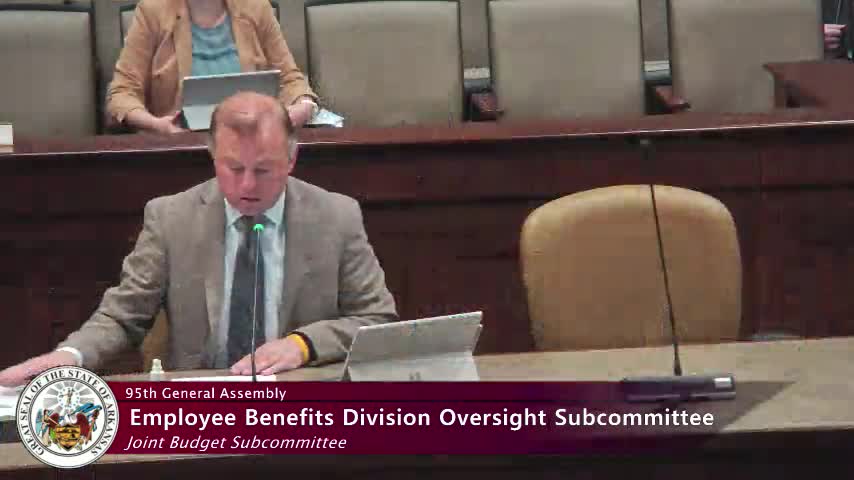Joint Budget Committee discusses proposed student loan forgiveness advisory contract; no vote recorded
Get AI-powered insights, summaries, and transcripts
Subscribe
Summary
The committee reviewed a proposed three-year contract to provide advisers for state employees navigating the federal Public Service Loan Forgiveness program. The presentation detailed program complexity, estimated eligible employees, and contract costs; the chair requested a motion but no vote was recorded in the transcript.
The Joint Budget Committee reviewed a proposed contract to hire an advisory firm to assist state employees with the federal Public Service Loan Forgiveness program (PSLF). Grant Wallace, director of the Employee Benefits Division, presented the proposal and cost estimates and emphasized the program’s complexity.
Wallace said PSLF allows individuals who work in government or nonprofit positions and make 120 qualifying payments to receive forgiveness of the remaining loan balance. He described the program as “very complicated” and said the state seeks an adviser to help employees navigate certification and verification requirements. “I will personally attest to the complexity of it because I thought I was doing the right thing,” Wallace said.
Wallace described the proposed contract as an initial three-year term with a first-year payment of $304,000, an initial three-year cost of $917,000, and a potential total cost of $2,100,000 over seven years if the contract continued that long. He said the contract would terminate if Congress or the federal government eliminated the federal program or stopped funding eligibility changes. “If for some reason, through an act of Congress, if this were to go away, this contract would also end at that time period,” Wallace said.
Senator Bryant questioned how many employees typically complete the program and whether Congress allocates participation by state. Wallace said he did not have the exact figure but estimated “something around, like 10% actually make it all the way through.” He added the division based its eligible pool at roughly 6,000 employees and said the program aims to improve successful completions. When asked what would happen if the contract were not approved, Wallace said the state would continue under current processes and employees could still pursue PSLF on their own; the contract’s purpose is to provide expert navigation and to support employee retention and well-being.
Wallace described the vendor model as a single company with multiple advisers offering on-site sessions, town halls, one-on-one meetings, and virtual options. A committee member asked whether internal audit or state auditor resources could provide the service; Wallace said the vendor’s expertise would be more suitable than hiring additional state employees. After discussion, the chair asked for a motion to approve the contract; the transcript records no motion or vote.
